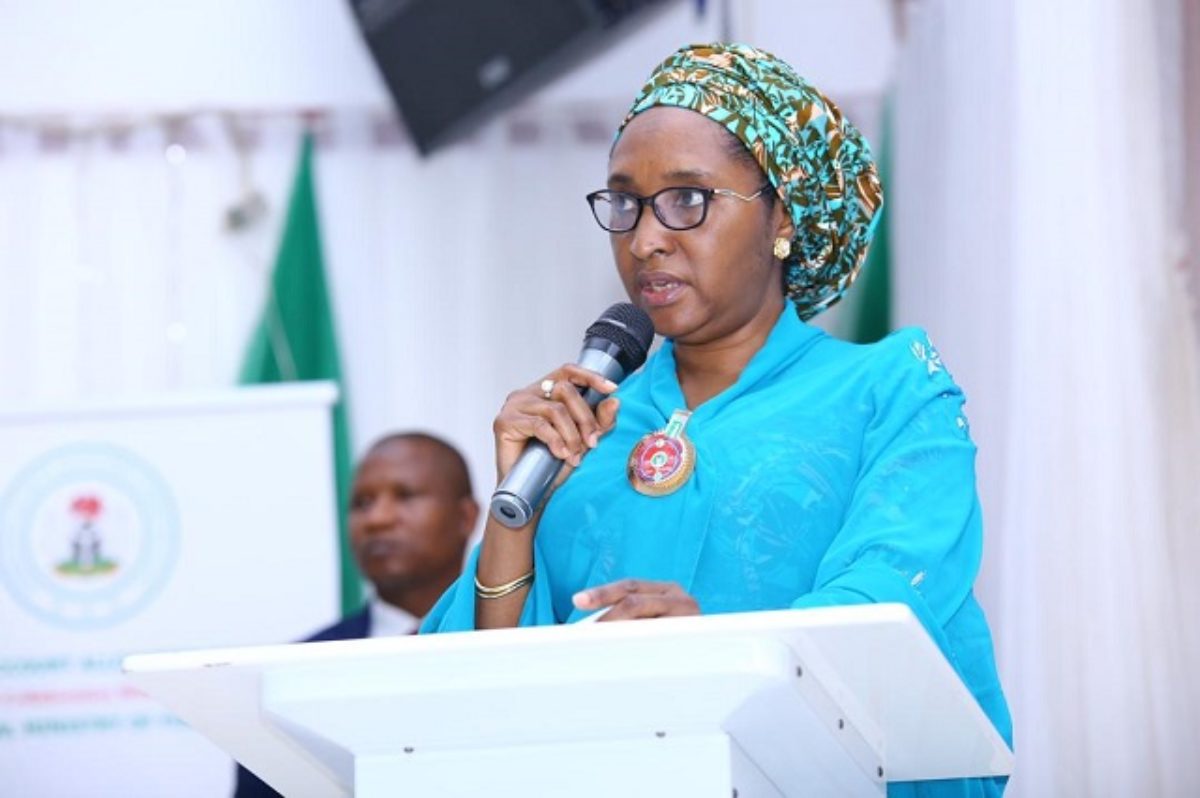On Monday, December 13, the Minister of Finance, Budget and National Planning, Mrs. Zainab Ahmed, said, during a public hearing on the 2021 Finance Bill, which was organised by the House of Representatives Committee on Finance that the federal government would introduce new tariffs and levies in 2022 in the 2021 Finance Act as part of its reforms and amendments of the country’s tax laws.
Ahmed suggested that the antiquated stamp duties and Capital Gains Tax should be reviewed by the National Assembly stating, “We prepared this draft bill (2021 Finance Act Bill) along five reform areas, the first is domestic revenue mobilisation; the second is tax administration and legislative drafting; the third is international taxation; the fourth is financial sector reforms and tax equity and the fifth is improving public financial management reform.
“The provision in the draft bill is proposing to amend the CGT, Company Income Tax, Federal Inland Revenue Service (FIRS) Establishment Act, Personal Income Tax, Stamp Duties Act and Tertiary Education Act, Value Added Tax (VAT), Insurance Police Trust Fund and the Fiscal Responsibility Act.
“This is to amend the Police Trust Fund Act and the Nigerian Trust Fund Acts. The purpose is to empower the FIRS to collect the Nigerian trust fund levies on companies on behalf of the fund itself.
“Currently, because there is no such provision, the FIRS has been unable to start collecting on behalf of the fund. Also, it is to streamline the tax and the levy collection from the Nigerian companies in line with Mr. President’s administration ease of doing business policy.”
The Speaker of the House of Representatives, Hon. Femi Gbajabiamila, said that the 2021 Finance Bill would seek to introduce strategic and broadminded positive reforms that would engender best practices and guarantee the interests of the investing public and businesses.
Gbajabiamila noted that the bill would seek to statutorily check borrowing by local, states and federal governments, enhance transparency and accountability in the administration in various strata of tax and public revenue generation.
He said: “It is instructive to state that the essence of the 2021 bill is to further reposition our finance system to plug wastes, close openings for corruption, create opportunities for employment as well as stimulate stability and growth in our productive sectors, within the wider context of our quest for economic recovery in our country.”
breathing space
However, the Nigerian manufacturers and members of the Organised Private Sector of Nigeria (OPSN) have asked the federal government for a breathing space and to spare business further taxation. They are saying almost in unison that any move by the government to increase taxation in whatever form or guises would be counterproductive and retard the contribution of the manufacturing sector to the GDP and cause a great setback on the ability of the real sector to support the poverty reduction/alleviation and job creation aspirations of President Muhammadu Buhari’s administration.
The Manufacturers Association of Nigeria (MAN), stated unequivocally that manufacturers in the country have been groaning under multiple taxations from the three tiers of government. It also said that its members are quite anxious about the imminent ill-advised re-introduction of excise, as well as steep increase in rate of excise on some products, including carbonated and non-alcoholic drinks and tobacco products.
It pleaded that manufacturing businesses are yet to fully stabilise from the debilitating disruptive effect of COVID-19 pandemic, adding that the so-called relief funds from government has remained largely non-accessible to manufacturers. No thanks to the country’s illiquid foreign exchange market that cannot accommodate their demands for hard currencies on the official FX window.
The Director General of MAN, Mr. Segun Ajayi-Kadir, said last week: “The tendency is (for government) to heed the advice from the World Bank and the like for more taxation in developing economies. But it has not considered that this has not led to appreciable growth in their economies. There is need for wisdom in gauging the times we are in and assessing the possible boomerang effects on our beleaguered socio-economic environment.
“With low and worsening disposable income, heightening insecurity and anxiety, caution is the word.What could be within reasonable contemplation should be widening the tax net to capture the largely untaxed endeavours that ought to have been within the tax bracket.
“I would want to believe that what the Honourable Minister (of Finance) was referring to is that the net will be expanded to capture those and not that exiting legitimate and diligent tax payers would be made to pay more or that additional taxes would be levied upon them. That will be counterproductive and the envisaged additional revenue may not be realized. Instead, we may start to witness dwindling profitability, higher rate of business failure and predisposition to tax evasion. This is not to mention the disincentive to local and foreign investment.”
Speaking in the same vein last week, the Chairman of the OPSN, Mr. Taiwo Adeniyi said that the organization has deemed it necessary to once again share its perspective and position on salient national economic issues within the context of setting the country’s economic priorities right and avoiding actions or counter-policies that could negate the gains.
Adeniyi, who is also the President of NECA, said that members of the OPSN are; “vehemently opposed to any attempt to further burden organised businesses in the guise of new taxes or levies at the three-tiers of government. Doing so will be counterproductive as this could further stifle the already burdened businesses, most of whom currently operate at less than 50 per cent capacity utilisation.
“It will also further lead to an upsurge in unemployment rate with its attendant socio-economic consequences. We call on the National Assembly not to accommodate or insert provisions that could further burden organised businesses into bills presented to it. We wish to specifically draw the attention of the National Assembly to the ‘Establishment of the Tertiary Hospital Development Fund Bill 2021,’ which among other things seek to impose one per cent tax on businesses.
“Organised businesses are currently providing healthcare services for the staff through in-house hospitals, HMO providers or direct billing. It is unreasonable and will be an over-kill to still saddle the same organisations with the task of contributing to infrastructural development in the healthcare sector. Businesses are currently paying various percentages of their revenue to the Nigeria Social Insurance Trust Fund, Industrial Training Fund, National Pension Commission and other government agencies.”
excise duty
Adeniyi also broached on the intention to reintroduce excise duty on carbonated drinks. He recalled that excise duties on carbonated drinks were suspended in 2009 during the global financial crisis to aid the sustainability of businesses. He, therefore, expressed concern that the federal government recently made pronouncements on reintroducing the excise duty on this class of products.
He said: “We make bold to say that the economic situation which necessitated the suspension of the excise in 2009 has not abated. In fact, businesses currently face greater hardship than what obtained in 2009. The introduction of the tax will be counter-productive as it will lead to further stifling of businesses in carbonated dring industry.
“Globally, at a time when governments continue to provide incentives for industries to speed up recovery from the shocks of the COVID-19 pandemic and escalating costs, Nigeria cannot afford to be doing the exact opposite as manufacturers, across all product segments need a respite, especially in the light of the unprecedented increase in production and operating costs.”
The chairman of the OPSN argued further that “it is instructive to note that Nigerian manufacturers have been contending with the dislocations caused by the pandemic and the recession that followed; they are also facing serious crisis resulting from liquidity challenges in the foreign exchange market, which is impacting adversely on the cost of production; in addition, they are faced with intense pressure arising from numerous structural bottlenecks that are creating sustainability challenges for investors, especially those in the SME segment. Also of concern is significant spike in the cost of raw materials, cost of fund, high import duty, elevated energy cost, prohibitive cost of transportation and high cost of logistics/shipping.
“We therefore, urge Government to jettison the idea of reintroducing the excise duty on carbonated drinks but continue to support and promote the industry to attain full recovery after the onslaught of the pandemic and position it to further accommodate the teeming unemployed Nigerian, particularly the youths.”
Investment Friendly Policy
On Thursday, December 16, the Sectorial Chairman of Non-Metallic Mineral Products Sectorial Group of Manufacturers Association of Nigeria (MAN), Mr. Afam Mallinson Ukatu, returned on the same subject when he spoke to members of Commerce and Industry Correspondence Association of Nigeria at the Sheraton Hotel, Lagos.
Ukatu appealed to the government to prevail on the Central Bank of Nigeria (CBN) to make an investment friendly monetary policy that would prevent the total collapse of manufacturing industries in Nigeria.
He claimed that inadequate availability of FX has affected many industries and constrained them source FX at higher exchange rates from the parallel market at a rates that are 30 per cent or more above the official exchange in order to remain in production.
According to him, the manufacturing and steel industry is facing lots of problems, regarding accessibility to foreign exchange to buy raw materials spare parts, which he identified as what it takes to keep a manufacturing concern alive and kicking.
Ukatu, who is also the managing director/CEO, NISPO Porcelain Coy Limited, said: “Your factory will be collapsing if you are not able to have access to FX to buy raw materials and spare parts. The MAN has been advocating that the CBN should create a window that can help genuine manufacturers to have access to FX with ease but to no avail.”
Speaking on the same point, the Founder/Chief Executive Officer of Centre for the Promotion of Private Sector, Dr. Muda Yusuf, observed that the high import dependence of Nigerian manufacturing sector on imported raw materials exposed it to three major risks. These are sharp depreciation of the currency, liquidity crisis in the FX market, and volatility of FX rate, which create considerable uncertainty and unpredictability for investors.
Yusuf said that the impact of currency depreciation on the real sector and the Small and Mediun Enterprises include “high cost of production, low sales and turnover because of the increase in price and effect on demand, erosion of profit margins because not all the additional cost can be passed on consumers and increase in business continuity risk for some segments of manufacturing.”




2 Comments